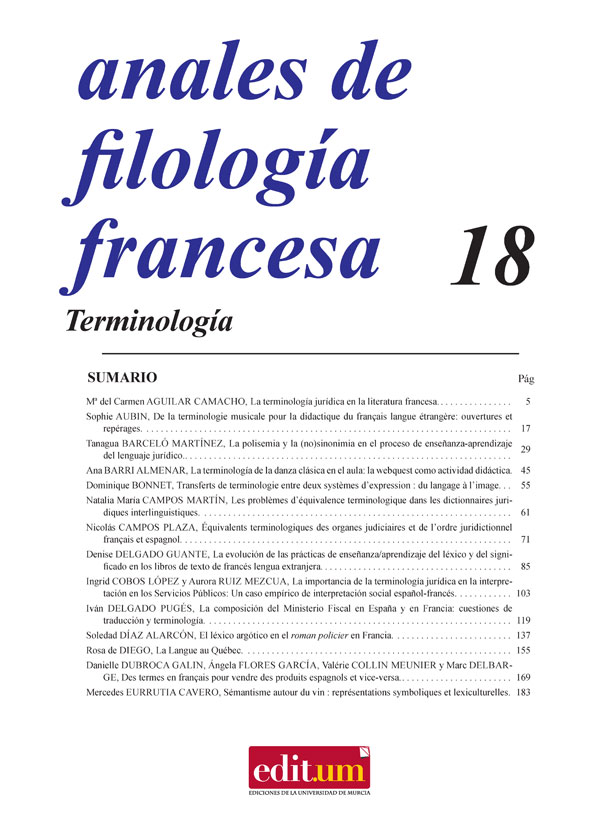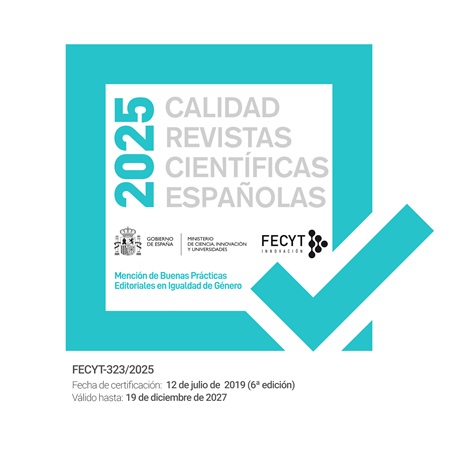La composición del Ministerio Fiscal en España y en Francia: cuestiones de traducción y terminología
Resumen
The translation of specialized texts demands translators to have a thematic knowledge related to many areas. In the case of the translation of legal texts, where the transmission of information is carried out between two different legal systems, a professional translator should possess special knowledge of the Law of both systems. This article aims to expose a brief summary of the figure of the French Ministère public and the Spanish Ministerio Fiscal, an organism that in both countries has as its mission that of promoting the operation of justice in the defence of the rule of law, of citizens’ rights and of the public interest as safeguarded by the law, as well as that of protecting the independence of the Courts and securing through them the satisfaction of social interest. To this end, in a first stage we will explain how this organism is articulated and organized in both systems, and in a second phase we will analyze if the existing differences may lead to translation or terminological problems that may hinder the translator’s work.Descargas
-
Resumen522
-
PDF284
Las obras que se publican en esta revista están sujetas a los siguientes términos:
1. El Servicio de Publicaciones de la Universidad de Murcia (la editorial) conserva los derechos patrimoniales (copyright) de las obras publicadas, y favorece y permite la reutilización de las mismas bajo la licencia de uso indicada en el punto 2.
2. Las obras se publican en la edición electrónica de la revista bajo una licencia Creative Commons Reconocimiento-NoComercial-SinObraDerivada 3.0 España (texto legal). Se pueden copiar, usar, difundir, transmitir y exponer públicamente, siempre que: i) se cite la autoría y la fuente original de su publicación (revista, editorial y URL de la obra); ii) no se usen para fines comerciales; iii) se mencione la existencia y especificaciones de esta licencia de uso.
3. Condiciones de auto-archivo. Se permite y se anima a los autores a difundir electrónicamente las versiones pre-print (versión antes de ser evaluada) y/o post-print (versión evaluada y aceptada para su publicación) de sus obras antes de su publicación, ya que favorece su circulación y difusión más temprana y con ello un posible aumento en su citación y alcance entre la comunidad académica. Color RoMEO: verde.











